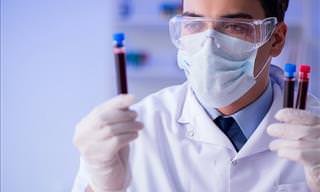What Are Medical Detection Dogs?
Dogs are loyal companions, and they are known to protect their owner’s life when in danger, but this is not the only way your faithful pet may be able to save your life. Teams of medical researchers from different corners of the Earth argue that we can train dogs to detect different diseases at early stages of their development and alert their owners.
Previous studies have shown that dogs can be trained to detect sugar spikes in their diabetic owners and identify a specific kind of dangerous bacteria by sniffing it out in a room, but recent research discovered that dogs can also identify cancer, likely even better than fancy medical equipment.
How Can Medical Detection Dogs Sense that a Person is Ill?
As you may already suspect, dogs can tell a sick person from a healthy one by sniffing out chemical compounds that appear in humans’ sweat, urine, breath, and blood when they get sick. Dogs an exceptionally sharp sense of smell, exceeding a human’s olfaction by 10.000.
This is because dogs have a lot more scent glands than we do: 125-300 million compared to about 5 million in humans. Apart from that, dogs are extremely cooperative and easy to train, although the researchers do point out that some dogs are less interested in the disease-detecting process than others, but the majority of these fluffy helpers do seem to enjoy the task and, of course, eagerly accept any following rewards.
Scientists also found that scent hounds are often better at detecting a specific disease because they have more scent glands than, let’s say, retrievers, but because labradors and golden retrievers are very cooperative, some experiments and training programs involve them instead.
What Diseases Can Dogs Detect?

While we can reliably detect many diseases in the lab or through medical devices, it remains challenging to identify different types of cancer at an early stage. In the case of chronic diseases like diabetes, constant medical supervision may work, but it can diminish the patients’ life satisfaction, a daily doctor’s visits surely interfere with one’s life. Service dogs could help with both issues. Read more on specific diseases dogs can detect below.
1. Cancers. Without doubt, cancer is one of those diseases that are important to catch early, and blood tests along with PET or CT scans are expensive and sometimes unreliable in finding tumors in their early stages of development. A recent study found that beagles were more reliable at detecting lung cancer by sniffing blood samples than medical devices, with an overall success rate of 96%. Previous studies also found that dogs can find breast, bladder, colorectal and ovarian cancer.
2. Malaria. This dangerously contagious, life-threatening disease has frequent outbreaks. Luckily, it’s curable and preventable, if caught early. Bio-detection dogs were proven to be able to isolate patients carrying the disease by simply sniffing their clothes, which can be very useful at limiting future outbreaks and providing early treatment.
3. Parkinson’s disease. There is scientific evidence showing that trained dogs can single out Parkinson’s patients before they exhibit any symptoms of the disease. Even though we can’t cure this condition, early detection can help slow down the progression of the disease.

4. Allergies. People with life-threatening allergies, such as nut allergies, often end up in the hospital because they eat or otherwise get in contact with nuts without knowing it. Dogs can be trained to warn their owners before they get in contact with the allergen.
5. Addison’s Disease. Individuals with Addison’s disease, which is a dysfunction of the adrenal gland, can experience fluctuations in adrenal hormones, which can be very dangerous. If these hormones are dangerously low, it can cause seizures or loss of consciousness. Medical detection dogs were found to smell these changes in adrenal levels and are able to alert the owner in case of danger.
6. Hypoglycemia in Diabetics. Dangerous blood sugar drops are a daily concern for diabetics, and not being able to detect these drops may lead to hypoglycemia, which is an extremely dangerous and potentially life-threatening state. Trained dogs can smell when their owners’ blood sugar drops, and they can alert their owners and fetch their medication if necessary.
In summary, the field of medical detection dogs is growing rapidly and we find new and new ways we can involve canines in medicine. Very soon, we might just have simple breath tests that will be able to help us catch many life-threatening conditions with the help of professional medical detection dogs.
If you’re interested in seeing how everything we discussed in this article actually looks like, you can watch the BONUS VIDEO below.
 Go to BabaMail
Go to BabaMail






















































